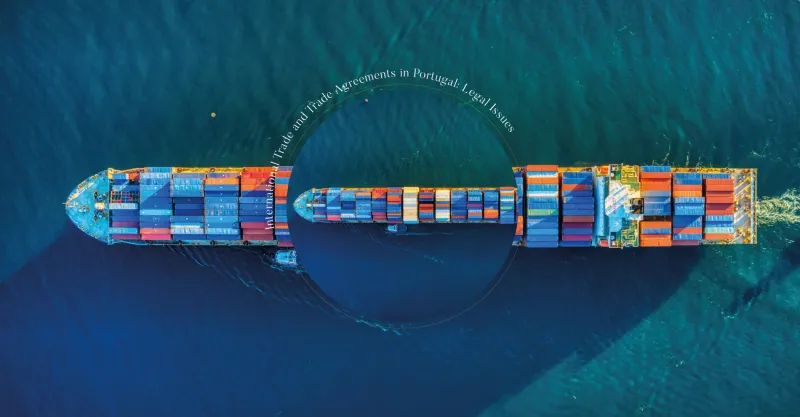Publications
04 September 2023
International Trade and Trade Agreements in Portugal
As an active member of the international community, Portugal faces significant legal challenges in the realm of international trade and trade agreements.
The complexity of these legal issues deepens when we analyze Portugal's role in bilateral and multilateral trade agreements, as well as the subsequent legal effects on local businesses and the country's legal framework.
Bilateral trade agreements, which constitute a substantial part of Portugal's international trade strategy, involve detailed and meticulous negotiations. The reduction of customs tariffs, for example, plays a central role in these agreements. Through these treaties, Portugal seeks to eliminate or reduce trade barriers that may affect its exports or imports. This involves the creation of transparent legal regulations and precise tariff definitions, giving rise to complex legal debates surrounding every aspect of the trade involved.
The safeguarding of intellectual property also holds extreme importance in bilateral trade agreements. For local businesses, compliance with intellectual property regulations represents a legally significant obligation. This translates into the need to develop and maintain internal policies in line with the standards established in the agreements, thereby ensuring the protection of patents, trademarks, and copyrights.
Another legally significant aspect to consider relates to the resolution of trade disputes. Bilateral treaties often establish specific procedures for dispute resolution, often requiring legal action or international arbitration. These processes require legal expertise to ensure that local businesses are adequately protected and can seek a fair resolution in case of trade disputes.
On the other hand, participating in multilateral trade agreements through the European Union commits Portugal to a series of additional legal challenges. Harmonizing national laws with EU regulations is a complex and time-consuming task that requires significant legal revisions. Compliance with international standards, often set by organizations such as the World Trade Organization (WTO), also subjects Portugal to rigorous legal scrutiny.
To summarize, legal issues related to bilateral and multilateral trade agreements have a profound impact on Portugal. These issues shape not only the business environment but also the country's legal framework. For local businesses, a precise understanding of these issues is vital, as their compliance with regulations and their ability to resolve trade disputes can directly affect their competitiveness and success in an ever-evolving international trade landscape.
Legal Feedback
